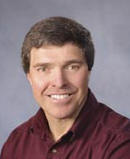 During the past several years, many studies have highlighted the health value of strength training for aging adults. Research at the University of Maryland has shown that strength training is effective for improving glucose metabolism, increasing bone mineral density, and speeding up gastrointestinal transit. Studies at Tufts University have demonstrated that strength exercise adds lean tissue, increases resting metabolism, and reduces arthritic discomfort. Extensive work at the University of Florida has shown that strength training increases low back strength and alleviates low back pain.
During the past several years, many studies have highlighted the health value of strength training for aging adults. Research at the University of Maryland has shown that strength training is effective for improving glucose metabolism, increasing bone mineral density, and speeding up gastrointestinal transit. Studies at Tufts University have demonstrated that strength exercise adds lean tissue, increases resting metabolism, and reduces arthritic discomfort. Extensive work at the University of Florida has shown that strength training increases low back strength and alleviates low back pain.
While all of these health and performance factors are important, perhaps the most compelling concerns for most seniors are the three "Bs"-body weight, blood pressure, and body composition.
Most senior men and women are concerned about getting soft, gaining weight, and elevating their blood pressure. They have already discovered that dieting doesn't produce permanent weight loss and that walking isn't always effective for firming muscles. Quite true. Unfortunately, many seniors are afraid to try strength training, because they've heard that it can increase both their body weight and their blood pressure. Untrue.
Several small-scale studies have shown that strength exercise is effective for decreasing body weight, increasing lean weight, and reducing resting blood pressure. In addition, strength training results in a higher resting metabolic rate and greater daily energy utilization.
But what specific changes can seniors expect from a basic program of strength exercise? We recently analyzed data on 1,132 men and women who completed the South Shore YMCA basic fitness program. All of the participants performed 25 minutes of strength exercise and 25 minutes of endurance exercise, two or three days per week for a period of eight weeks.
The strength-training program included the following Nautilus exercises: leg extension, leg curl, leg press, chest cross, chest press, super pullover, lateral raise, biceps curl, triceps extension, low back, abdominal curl, neck flexion, and neck extension. Each exercise was performed for one set of eight to 12 repetitions, at a slow movement speed (2 seconds lifting and 4 seconds lowering) and through a full range of motion. Resistance was increased by approximately five percent when 12 repetitions were completed.
The endurance-training program involved walking on a treadmill and stationary cycling. Participants exercised at about 70 to 75 percent of their maximum heart rate, and progressively increased their training time to 25 minutes of continuous aerobic activity.
The basic fitness program was offered in a separate and carefully supervised exercise room. Classes were held almost every hour throughout the day, and typically had six participants with two instructors. The class members were assessed for body weight, body composition, fat weight, lean weight, systolic blood pressure, and diastolic blood pressure before and after the two-month training period.
Weight and Body Composition
The 1,132 basic fitness program participants included 238 young adults (21 to 40 years), 553 middle-aged adults (41 to 60 years), and 341 senior adults (61 to 80 years). As shown in Table 1, all three age groups started the program with similar body weights (172.7 to 179.9 lb.) and percent fat readings (25.6 to 27.2 percent). The body weight and body composition changes were comparable for all age groups.